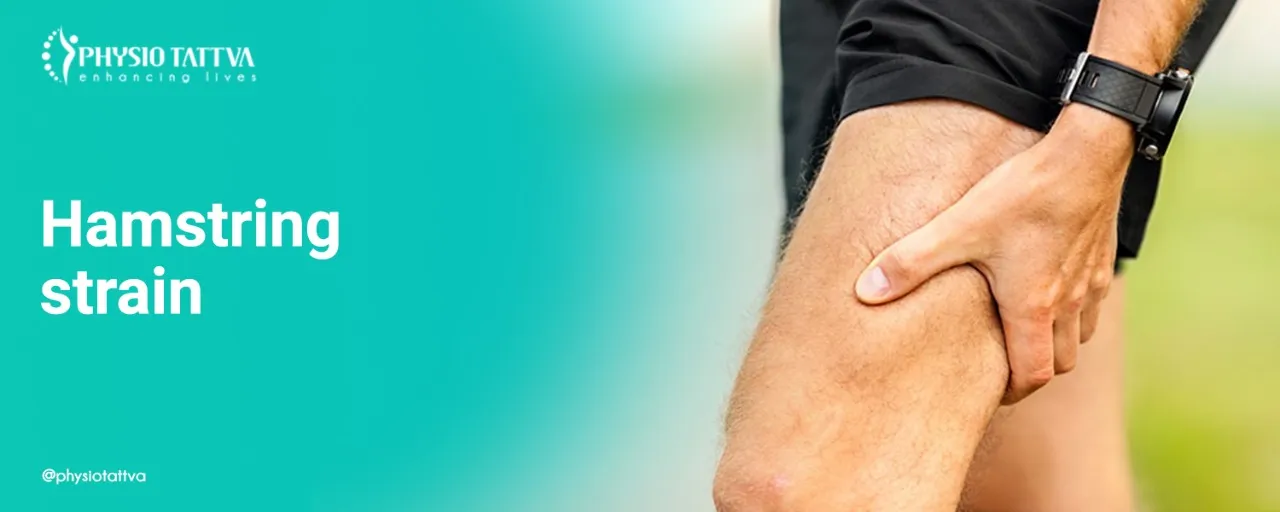Understanding Knee Pain
Knee pain can range from a mild ache to sharp, severe pain that limits mobility. It has serious implications on your day to day activities as well. It is important to understand knee pain involves recognising how it impacts your life, whether it’s from an injury, overuse, or an underlying condition like arthritis.
Knowing the source of your knee pain is the first step in finding the right treatment, so you can get back to moving comfortably and without pain.
Common Symptoms of Knee Pain
Knee pain symptoms can show us as a dull ache, sharp pain, or even a burning sensation in or around your knee. Swelling, stiffness, and difficulty bending or straightening your leg are also common.
Some people experience a clicking or popping sound when moving their knees. These symptoms can make it hard to walk, climb stairs, or do other everyday activities.
Common Causes of Knee Pain
Knee pain can stem from various factors. Injuries such as sprains, strains, or ligament tears are frequent, especially among athletes. Chronic knee pain often results from conditions like osteoarthritis or rheumatoid arthritis, which cause inflammation and joint deterioration.
Overuse from activities like running or cycling, as well as poor biomechanics of posture, can also contribute to knee discomfort. Interferential Therapy IFT for knee pain is an effective treatment option that can help address these issues at their source by targeting pain and promoting healing.
Identifying the root cause of your knee pain is essential for selecting the appropriate treatment.
Diagnosing Knee Pain
Diagnosing knee pain usually starts with a physical examination and a discussion about your symptoms and medical history. Your doctor might also order imaging tests, like X-rays, MRI, or ultrasound, to get a clearer picture of what’s happening inside your knee. These tests help identify issues like joint damage, ligament tears, or other conditions that could be causing your pain. Once the cause is identified, you and your doctor can create a treatment plan to manage your knee pain effectively.
Understanding Interferential Therapy IFT for Knee Pain
Interferential Therapy (IFT) is a treatment that uses low-frequency electrical currents to relieve pain and reduce inflammation. It works by sending these currents through the skin, where they interact with deeper tissues and nerves. The goal is to block pain signals and encourage healing in the affected area.
Interferential Therapy IFT for Knee pain is commonly used for conditions like knee pain, offering a non-invasive option that can be used alone or alongside other treatments.
How Interferential Therapy for Knee Pain Management Works?
IFT targets deep tissues around the knee with low-frequency electrical currents. These currents help block pain signals from reaching the brain, reducing your perception of pain. At the same time, IFT promotes better blood flow to the area, which can help reduce swelling and encourage healing.
This makes it easier to move your knee without discomfort, whether you’re dealing with an acute injury or chronic pain. IFT is a straightforward, non-invasive treatment that can be a valuable part of your knee pain management plan.
Benefits of Interferential Therapy IFT for Knee Pain
Interferential Therapy offers several benefits for managing knee pain. It’s a non-invasive treatment, meaning no surgery or medication is required. IFT helps reduce pain by blocking pain signals and can also decrease inflammation by improving blood flow to the affected area. This can lead to quicker healing and better mobility, making it easier to perform everyday activities.
Reduced Inflammation by Interferential Therapy IFT for Knee pain
Inflammation happens when your body tries to protect an injured area, but sometimes it sticks around too long and causes more pain. IFT helps by sending tiny electrical signals through the skin to the deeper tissues, calming down the inflammation. This means less swelling and pain, so your knee can start healing faster.
Enhanced Healing
IFT can boost the body’s natural healing process by improving blood flow to the painful area. This increased circulation brings more oxygen and nutrients to the tissues, helping them repair faster. Think of it as giving your knee an extra push to heal more quickly.
Improved Mobility
Pain and stiffness can make it hard to move around, whether it’s walking, climbing stairs, or even just standing up. Interferential Therapy IFT for knee pain helps by reducing pain and inflammation, which in turn makes it easier to move your knee without discomfort.
This improved mobility means you can get back to doing the things you enjoy, like playing sports or just walking without pain.
Muscle Relaxation
Muscle relaxation is another benefit of Interferential therapy IFT for knee pain , especially if your knee pain is making your muscles tight and uncomfortable. The electrical currents used in IFT help your muscles relax, easing tension and reducing pain.
Imagine your muscles getting a gentle massage that helps them unwind. This relaxation not only makes you feel better but also helps your knee move more freely.
Adjunct to Other Therapies
Using IFT as an adjunct to other therapies means it works well alongside other treatments for knee pain. Whether you’re doing physical therapy, taking medication, or using other methods, IFT can boost their effectiveness.
It’s like adding an extra tool to your treatment toolbox. By reducing pain and inflammation, IFT makes it easier for other therapies to work better.
Who Can Benefit from Interferential Therapy IFT for Knee Pain?
IFT can benefit a wide range of people dealing with knee pain, from athletes with injuries to older adults with arthritis. If you’re experiencing pain, stiffness, or swelling in your knee, Interferential Therapy IFT for knee pain might help.
It’s especially useful for those looking for a non-invasive treatment option without relying on medication. Whether your knee pain is due to an injury, overuse, or a chronic condition, IFT can offer relief.
Treatment Parameters of Interferential Therapy IFT for Knee Pain
Interferential Therapy IFT for knee pain uses various parameters to tailor knee pain treatment. Frequency settings adjust how often currents are delivered, targeting specific tissue depths.
Electrode placement ensures currents are directed to the pain area. Intensity controls the strength of the currents, while duration defines how long each session lasts. Vector mode and pulse duration manage the direction and length of the currents, respectively. Amplitude modulation varies current strength for effective pain relief.
What to Expect During Interferential Therapy IFT for Knee Pain Treatment?
When you go for Interferential therapy IFT for knee pain treatment, the first step is a consultation where the therapist asks about your pain and checks your knee. They explain how IFT works and what to expect. During the session, small electrodes are placed around your knee to send gentle electrical currents into the tissues.
You might feel a tingling sensation, but it shouldn’t hurt. The session usually lasts about 20-30 minutes. Afterward, you can go back to your normal activities without any downtime. Regular sessions are typically recommended to see the best results.
Initial Consultation and Assessment
During the initial consultation for Interferential Therapy IFT for knee pain, the therapist will talk with you about your knee pain and medical history. They’ll ask questions about when the pain started, what makes it better or worse, and how it affects your daily life.
They may also examine your knee to see how well you can move it and check for swelling or tenderness. This assessment helps the therapist understand your specific condition and decide if IFT is right for you. It’s an important first step in creating a personalised treatment plan to manage your knee pain effectively.
IFT Session
An Interferential Therapy IFT for Knee pain session is straightforward. You’ll sit or lie down comfortably while the therapist places small electrodes around your knee. These electrodes are connected to a machine that sends low-frequency electrical currents through your skin.
The currents target the deeper tissues in your knee, helping to reduce pain and inflammation. You might feel a mild tingling or buzzing sensation, but it’s generally painless. Each session typically lasts about 20-30 minutes. After the session, you can continue with your day as usual, with no need for recovery time.
Post-Treatment Care
After an IFT session, there’s usually not much you need to do. You can go about your normal activities without any restrictions. Some people might feel a bit of muscle soreness or mild fatigue, but these feelings usually pass quickly. It’s a good idea to stay hydrated and avoid overexerting your knee immediately after treatment.
If you’re combining Interferential Therapy IFT for Knee pain with other therapies like exercises or stretching, be sure to follow the therapist’s recommendations to get the best results. Regular sessions and proper post-treatment care can help maximise the benefits of IFT.
Who Should Avoid Interferential Therapy IFT for Knee Pain?
IFT is generally safe, but it’s not suitable for everyone. People with certain conditions should avoid it. For example, if you have a pacemaker or other electronic implants, the electrical currents used in IFT could interfere with these devices.
Pregnant women, especially in the first trimester, should also steer clear of IFT. If you have a history of epilepsy, or any severe skin conditions around the knee, IFT might not be the best option. Always consult your doctor or therapist to make sure IFT is a safe choice for managing your knee pain.
Integrating Interferential Therapy IFT for Knee Pain Treatment
Integrating Interferential Therapy IFT for Knee pain into your knee pain treatment plan can enhance overall effectiveness. IFT works well alongside other therapies like physical therapy exercises, medication, or even lifestyle changes.
For example, after doing strengthening exercises for your knee, IFT can help reduce any post-exercise pain or inflammation. Combining these approaches can provide more comprehensive relief, helping you recover faster and stay pain-free longer. Working with your therapist to create a balanced treatment plan that includes IFT can give you the best chance of managing your knee pain effectively and getting back to your usual activities.
Combining Interferential Therapy IFT for Knee Pain with Physical Therapy
Combining IFT with physical therapy can be a powerful way to manage knee pain. While IFT helps reduce pain and inflammation, physical therapy focuses on strengthening the muscles around your knee and improving flexibility. During physical therapy sessions, you might do exercises and stretches tailored to your needs.
Interferential Therapy IFT for knee pain can make these exercises more comfortable by easing pain and reducing swelling. This combination can speed up your recovery and help you move better. Working together, IFT and physical therapy provide a balanced approach to treating knee pain, helping you get back to your normal activities more effectively.
IFT and Chiropractic Care
Chiropractors focus on aligning your joints and spine to improve overall function, which can help with knee pain if it’s related to misalignment.
Interferential Therapy IFT for knee pain complements this by reducing pain and inflammation directly in the knee. After a chiropractic adjustment, IFT can help manage any discomfort or swelling that might follow. Combining these treatments offers a comprehensive approach, addressing both alignment issues and pain relief.
Using Interferential Therapy IFT for Knee Pain Alongside Medication
Using IFT alongside medication can help you manage knee pain more effectively. While medication can help reduce pain and inflammation from within, IFT targets the knee directly with electrical currents to provide additional relief.
This combination can reduce your overall reliance on pain medications and potentially improve your comfort and mobility. IFT can also help you manage side effects from medications, such as stiffness or muscle tension.
Always consult your doctor to ensure that combining these treatments is safe and appropriate for your specific condition.
Holistic Pain Management Strategies
Interferential Therapy IFT for knee pain can be used along with other forms of care such as physiotherapy and medication, that allows it to be part of a more holistic pain management strategies for treating knee pain.This might include combining IFT with other methods like physical therapy, exercise, proper nutrition, and stress management.
You can improve your knee pain more effectively. For example, along with IFT to manage pain and inflammation, you might also do exercises to strengthen your knee and practice stress-relief techniques to help with pain perception.
Consulting a Healthcare Professional for Optimal Results
To get the best results from Interferential Therapy IFT for knee pain, start by consulting a healthcare professional. They’ll assess your knee condition and discuss your symptoms, medical history, and treatment goals. This helps them determine if IFT is the right option for you and how it should be used in your treatment plan.
Your healthcare provider will explain what to expect, how many sessions you might need, and any other treatments that could be beneficial. For personalised care and expert guidance, visit Physiotattva. Our team is ready to help you manage your knee pain effectively and tailor the treatment to your specific needs. Book your consultation with Physiotattva today and take the first step towards pain relief!
Experience Pain Relief with Interferential Therapy IFT for Knee Pain at Physiotattva
To experience comprehensive knee pain relief with Interferential therapy IFT for knee pain , start by reaching out to Physiotattva. Our team of professionals will evaluate your condition and create a personalised treatment plan that incorporates IFT. We use state-of-the-art technology to ensure you get the best results. Throughout your treatment, we’ll monitor your progress and adjust the plan as needed to maximise effectiveness.
At Physiotattva, we focus on delivering care that addresses your unique needs and helps you regain comfort and mobility. Ready to find relief? Schedule your appointment with us today and discover how IFT can help you feel better and move more freely.
At Physiotattva physiotherapy clinics in Bangalore and Hyderabad, you receive personalised care tailored to your specific needs, ensuring effective results and comfort throughout your journey to recovery.
Don’t wait to start your recovery! Get in touch with Physiotattva for more details! Contact us at +91 89510 47001.


-for-Knee-Pain-Relief.webp)

.webp)









.webp)
.jpeg)



.webp)
.webp)


.webp)


.webp)




.png)










%20(1)-p-3200.jpeg)


.jpg)
.webp)
.webp)
.webp)




